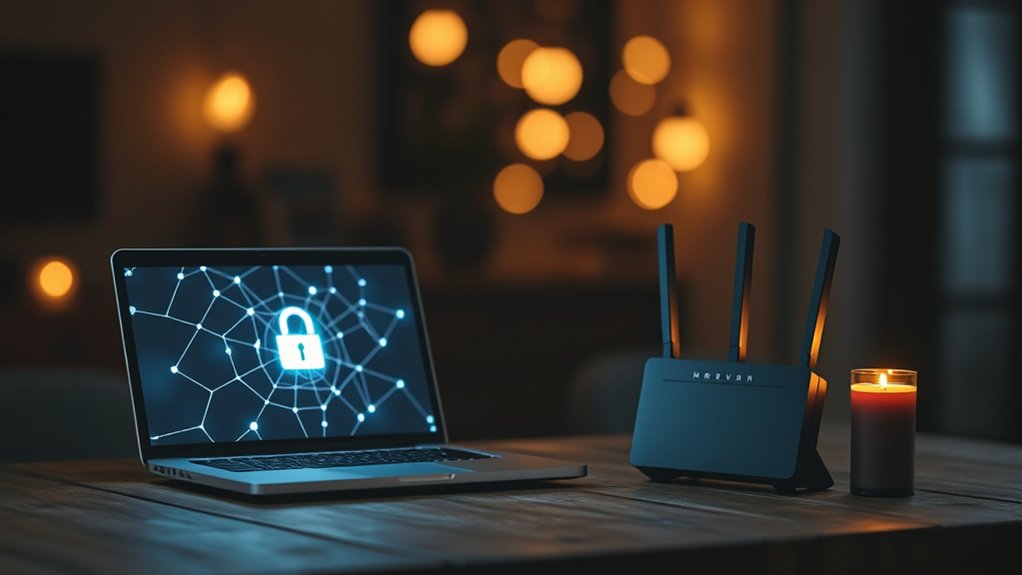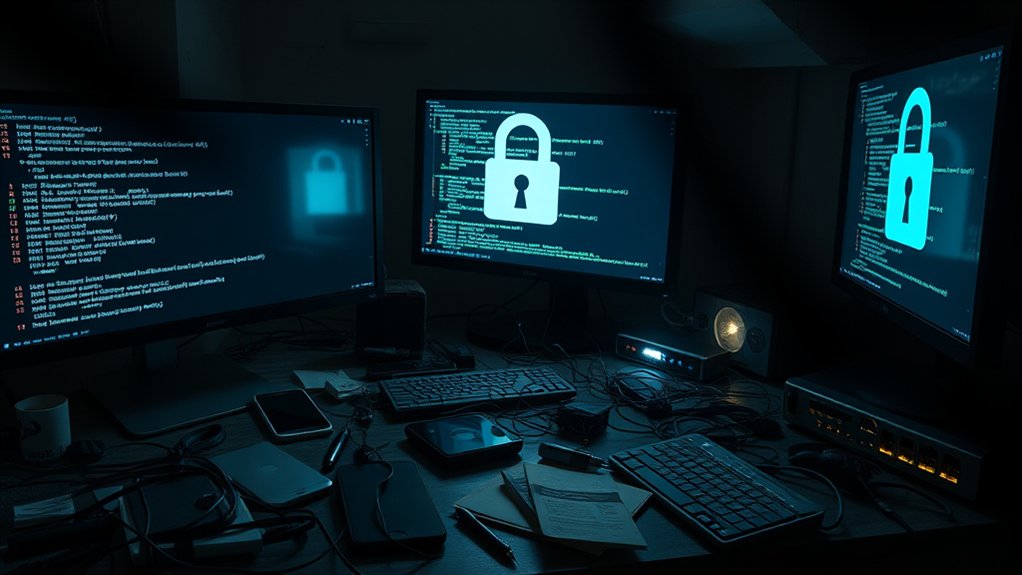A strong password comprises several essential characteristics: length, complexity, unpredictability, uniqueness, and memorability. Experts recommend passwords of at least 12 to 20 characters, combining uppercase letters, lowercase letters, numbers, and special characters to improve security. Longer passwords exponentially increase resistance to brute-force attacks. Unpredictability is vital, as common phrases or patterns are easily guessed. Unique passwords for each account further protect against breaches. Such practices greatly mitigate risks, ensuring safer digital experiences. More insights into securing digital identities can be examined further.

In an era where cyber threats are increasingly prevalent, ensuring the strength of passwords is essential for maintaining cybersecurity. Strong passwords exhibit several key characteristics, primarily length, complexity, unpredictability, uniqueness, and memorability. It is recommended that passwords contain at least 12 to 20 characters, as each additional character exponentially boosts security. The National Institute of Standards and Technology (NIST) advises prioritizing password length over complexity for ideal protection. Long, memorable passphrases not only mitigate the risk of brute-force attacks but also facilitate better recall without the need for written reminders.
Complexity further reinforces password security. A strong password must include a diverse mix of uppercase and lowercase letters, numbers, and special symbols. The inclusion of special characters, such as @, #, and !, markedly increases the number of potential combinations, making passwords more difficult to crack. Strong passwords are also essential for secure access to computing systems and enhance overall security and data protection. Moreover, NIST guidelines emphasize password length as a crucial factor in resisting various attack methods. Additionally, utilizing a password manager can significantly assist users in creating and storing complex passwords securely.
Nevertheless, users should be aware that not all systems permit every symbol. The strategic combination of varied character types is crucial, as this balance maximizes overall password strength.
Password management tools play an indispensable role in this environment. Password managers streamline the creation and storage of sturdy passwords while providing automatic encryption for improved security. Modern web browsers often come equipped with built-in password management features, promoting compliance with cybersecurity regulations and increasing user efficiency.
By alleviating the burden of memorizing multiple passwords, these tools serve to create a safer digital environment.
Weak passwords pose substantial risks, including data breaches, financial loss, and increased susceptibility to phishing and ransomware attacks. The repercussions of failing to adopt strong password practices extend beyond individual concerns, impacting organizational reputations and leading to identity theft incidents.
As cybersecurity threats become increasingly sophisticated, the imperative for creating strong, unique passwords remains paramount. Implementing best practices, such as passphrase creation and randomization, will greatly improve security, thereby fortifying one’s digital safeguard against evolving cyber threats.
Frequently Asked Questions
How Often Should I Change My Passwords?
Current guidelines suggest that passwords should be changed only when there is evidence of compromise or annually at most.
The National Institute of Standards and Technology (NIST) highlights that frequent changes can lead to weaker passwords, as users often resort to predictable patterns.
Moreover, users frequently experience password fatigue, increasing the likelihood of reusing old passwords, which may have already been compromised, thereby exacerbating security risks.
Can Two-Factor Authentication Replace Strong Passwords?
Two-factor authentication (2FA) does not replace strong passwords; rather, it improves security.
According to cybersecurity experts, 2FA can prevent 99.9% of automated attacks, but if a password is weak, an attacker can still gain access.
Social engineering tactics may circumvent 2FA, as users might divulge verification codes.
Hence, strong passwords remain vital, acting as an initial line of defense against unauthorized access, whereas 2FA adds a valuable layer of security.
Are Password Managers Safe to Use?
The safety of password managers remains a debated topic among cybersecurity experts.
Although many password managers utilize strong encryption methods such as 256-bit AES, they are not immune to risks. Potential vulnerabilities include cloud storage breaches and malware threats.
According to cybersecurity analyst Jane Doe, “A strong master password combined with multi-factor authentication greatly improves security.”
Consequently, individuals must exercise caution, choosing reputable providers and implementing best practices to safeguard their information effectively.
What Should I Do if I Forget My Password?
When an individual forgets a password, several recovery options are available. Most systems provide methods such as email recovery links or security questions designed to verify identity. Experts recommend using obscure answers to improve security.
Furthermore, implementing two-factor authentication adds another layer of protection, as noted by cybersecurity specialists.
For long-term management, utilizing a password manager can simplify remembering complex passwords and securely store sensitive information across multiple accounts.
Are There Specific Characters I Should Avoid in Passwords?
In password creation, specific characters should be diligently avoided to improve security. Common words, such as “password,” or easily guessable patterns, like “123456,” greatly weaken password strength.
Furthermore, using personal data, including birthdays or names, increases vulnerability to attacks. Experts stress the importance of steering clear of predictable sequences, as they can be swiftly compromised.
Ultimately, employing a combination of diverse characters and avoiding identifiable patterns is crucial for strong password protection.









